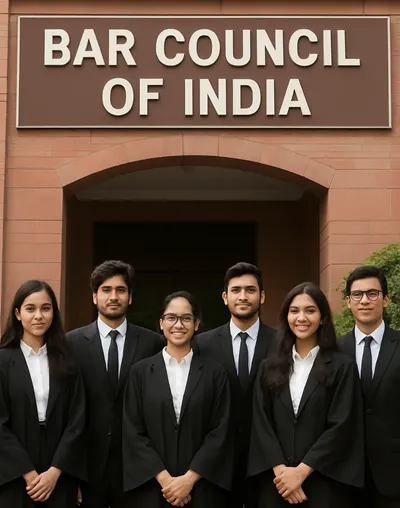
The Advocates Act, 1961 is the cornerstone law regulating the enrolment, practice, and conduct of advocates in India. It created a single class of legal practitioners, established the Bar Council of India (BCI) at the national level, and State Bar Councils at the state level.
This Act ensures that only qualified and enrolled advocates can practice law and lays down rules of ethics, discipline, and education for the profession.
Key Highlights
- One Law for All – Single category of advocates across India.
- Bar Council of India (BCI) – Apex body regulating legal practice and education.
- State Bar Councils – For enrolment, discipline, and local issues.
- Right to Practice – Only those enrolled and who pass AIBE (All India Bar Exam) can practice.
- Code of Conduct – Advocates must follow ethics; violations invite disciplinary action.
- Disciplinary Powers – Bar Councils can suspend or disbar advocates for misconduct.
State Bar Councils in India
| State/UT | Official Website |
|---|---|
| Bar Council of India (BCI) | https://www.barcouncilofindia.org/home |
| Delhi | https://delhibarcouncil.com/ |
| Maharashtra & Goa | https://barcouncilmahgoa.org/ |
| Uttar Pradesh | http://upbarcouncil.com/HomePage.aspx |
| Rajasthan | https://barcouncilofrajasthan.org/ |
| Punjab & Haryana | https://bcph.co.in/ |
| Madhya Pradesh | http://www.sbcofmp.org.in/ |
| Gujarat | https://www.barcouncilofgujarat.org/ |
| Tamil Nadu & Puducherry | https://www.bctnpy.org/ |
| Karnataka | https://ksbc.org.in/ |
| Kerala | https://www.barcouncilkerala.org/ |
| West Bengal | https://www.wbbarcouncil.com/ |
| Bihar | https://biharstatebarcouncil.com/ |
| Odisha | https://barcouncilofodisha.org/ |
| Jharkhand | https://jharkhandstatebarcouncil.in/ |
| Jammu & Kashmir | https://jkhighcourt.nic.in/ |
| Himachal Pradesh | http://barcouncilofhp.org/ |
| Chhattisgarh | http://www.sbcchhattisgarh.in/ |
(Most smaller UTs are covered by nearby State Bar Councils.)
Relatable FAQs – Advocates Act, 1961
-
1. What is the main purpose of the Advocates Act, 1961?
-
To regulate the legal profession, enrol advocates, maintain discipline, and control legal education in India.
-
2. Who can become an advocate in India?
-
Any Indian citizen with a recognised law degree who enrols with a State Bar Council and clears the AIBE.
-
3. What is the Bar Council of India (BCI)?
-
The national regulator that sets rules for advocates, legal ethics, and legal education.
-
4. What is a State Bar Council?
-
A state-level body that enrols lawyers, handles misconduct complaints, and manages welfare schemes.
-
5. Can an advocate practice anywhere in India?
-
Yes. Once enrolled, an advocate can practise in any court across India. For the Supreme Court, one must qualify as an Advocate-on-Record (AOR).
-
6. What is the All India Bar Examination (AIBE)?
-
A qualifying exam conducted by the BCI. Passing it gives a Certificate of Practice.
-
7. Can foreign lawyers practice in India?
-
They cannot appear in Indian courts but may advise on foreign law, arbitration, or corporate matters under BCI rules.
-
8. What happens if an advocate breaks professional rules?
-
The Bar Council may impose warning, suspension, or permanent disbarment.
-
9. Is legal education regulated under this Act?
-
Yes. BCI sets standards for law colleges, courses, and curriculum.
-
10. Why is this law important for ordinary people?
-
It ensures that only qualified and ethical advocates can represent clients, protecting citizens' rights and ensuring trust in the justice system.
Add new comment